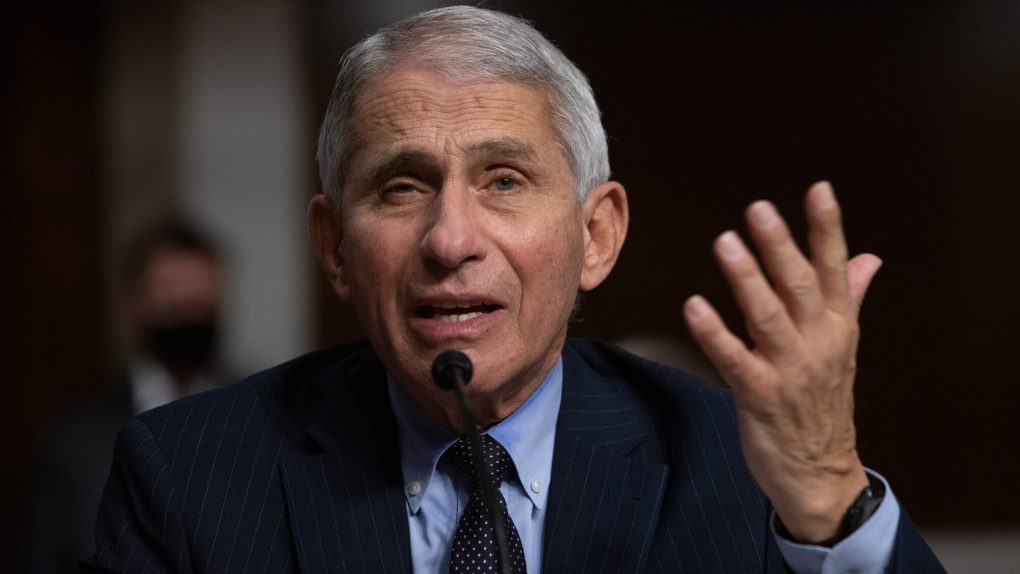- The UK coronavirus mutation is spreading faster than other variants and has reached several other countries, including America.
- Dr. Anthony Fauci said in a discussion with California Governor Gavin Newsom that he was not surprised to hear the B.1.1.7 variant was already spreading in the US.
- The NIAID director also offered great news about the mutation, revealing that early data from Great Britain shows people who recovered from COVID-19 aren’t more susceptible to a new infection with the mutated virus.
- The finding indicates that vaccines would work against the mutation as well.
Several countries have started vaccinating people with one of the three COVID-19 vaccine candidates that have received emergency use authorization so far. The rollout of vaccines is slow because there’s not enough supply. The drugs offer great immunity against severe COVID-19, but that protection needs a few weeks to set in. That’s why it will be several months before vaccines start slowing down outbreaks across the country and around the world. That’s also why protective measures will still be required for most of 2021 so that the risk of COVID-19 spread can further be reduced.
The reality is that the pathogen is still spreading wildly, with the US and most of Europe still dealing with significant COVID-19 outbreaks that continue to set new records. The novel coronavirus mutated early during the pandemic into a more contagious version that swept the globe. In late 2020, we learned that the virus had acquired another set of genetic changes that further increased its ability to infect cells. The UK mutation disclosed a few weeks ago, also known as B.1.1.7, is a collection of 17 genetic changes that the virus has acquired. The theory is that the virus mutated in an immunosuppressed patient with an active COVID-19 infection that lasted for several months. The result is a coronavirus version that’s even more infectious than its “parents,” and that version is largely responsible for Britain’s record number of cases. B.1.1.7 isn’t more deadly and it doesn’t cause more severe COVID-19. It spreads more efficiently than before though, and the strain has already been discovered in various countries, the US included.
Experts are still studying the new strain for definitive answers, but Dr. Anthony Fauci already has some good news about B.1.1.7. The new strain doesn’t appear to reinfect COVID-19 patients who have already recovered, and that’s actually fantastic news for vaccines.
Vaccine makers BioNTech and Moderna have already released statements saying that their vaccines are highly likely to work against B.1.1.7. More testing will follow to determine exactly what, if any, changes need to be made to the drugs.
Coronavirus vaccines tell the immune system to make neutralizing antibodies and B and T cells that specifically target the virus’s spike protein. The same thing happens naturally in patients who survive COVID-19. Any significant mutation at the spike protein level could render those vaccines useless. The same goes for the neutralizing antibodies, as well as B and T cells produced after infection with the real SARS-CoV-2 virus. It’s possible that the immune cells might not recognize the new pathogen, and a second infection would be possible.
Dr. Fauci spoke with California Governor Gavin Newsom during an online discussion and addressed the B.1.1.7 detection in the US. Doctors in Colorado and California have confirmed that the mutated strain is spreading in those states. Fauci said he was not surprised that the coronavirus variant is already in circulation in America, noting that more cases will likely surface around the country.
“It appears that this particular mutation does make the virus better at transmitting from one person to another,” the NIAID director said. But he added that the UK colleagues found that individuals infected with B.1.1.7 “don’t seem to get re-infected by this.” He added that immunity already acquired against a different coronavirus strain “is protective against this particular strain.”
If neutralizing antibodies created after COVID-19 can block B.1.1.7, then so will the neutralizing antibodies created after vaccines. In either case, the immune system creates antibodies that respond to the spike protein. The same goes for B and T cells that are involved in immune responses. Some T cells will recognize infected cells and kill them, whether the infection is from B.1.1.7 or a different variant. Simultaneously, B cells would recognize the pathogen and initiate the mass production of antibodies.
More research will be needed to confirm these initial findings, and it’s important to note that B.1.1.7 still poses a significant risk. If it’s more infectious, it could become dominant in other countries, just like what we’re seeing happen in the UK right now. A more infectious version of the illness — even one that doesn’t cause more severe courses of COVID-19 — can still lead to more deaths.
That’s why vaccination campaigns have to be ramped up. Fauci said on Wednesday that the immunization campaigns will improve, even though the current distribution is falling short of initial estimates. “As we get into January, the feeling is that we’re going to gain momentum to be able to catch up,” he told Newsom. “By the time we get to the early fall, we will have enough good herd immunity to be able to really get back to some strong semblance of normality – schools, theaters, sports events, restaurants.”
Fauci also explained in previous interviews that the same public health measures everyone has been advising will also work against the B.1.1.7 variant. That includes wearing face masks, practicing social distancing, and washing your hands frequently with soap and water or hand sanitizer.








